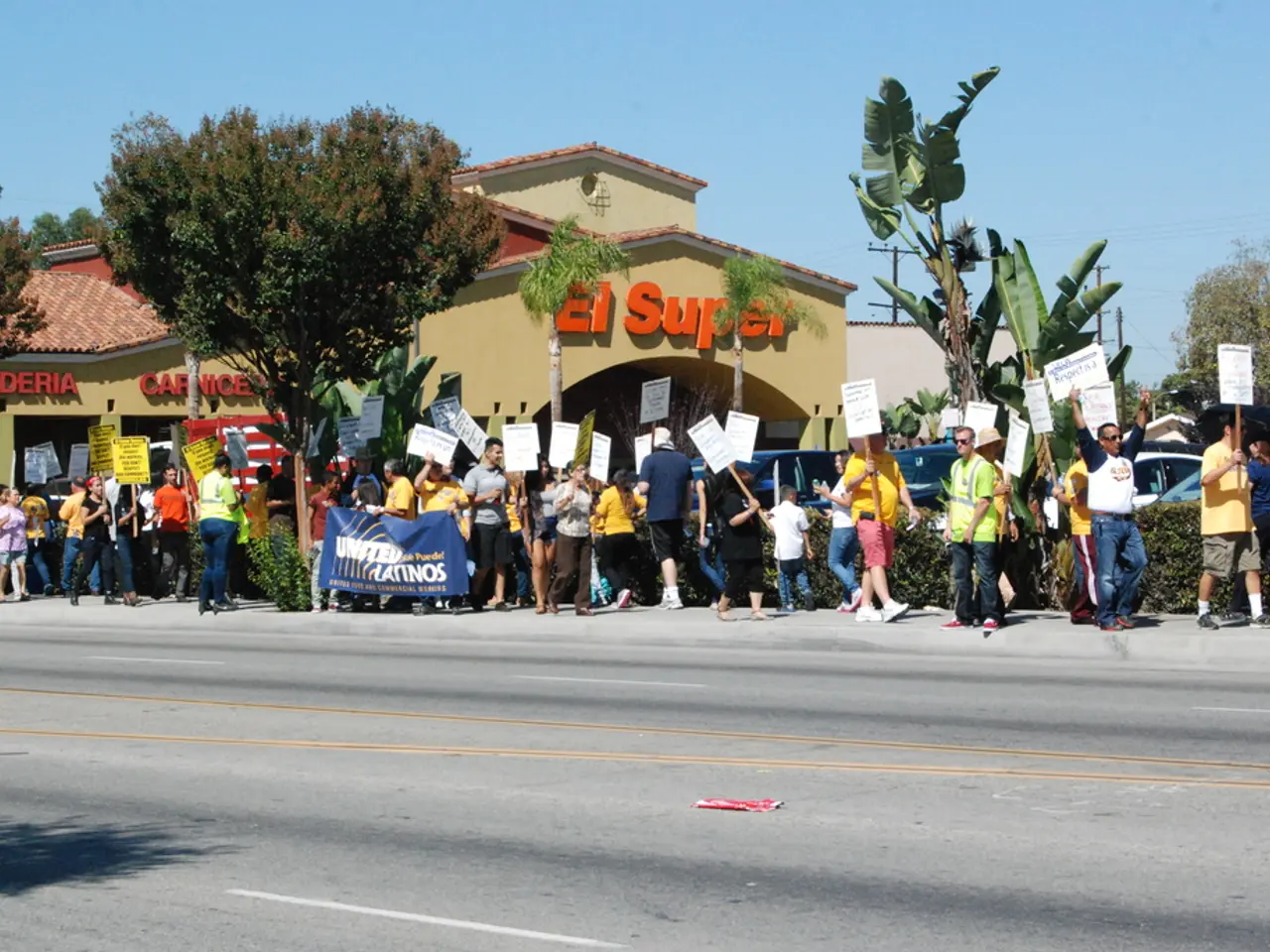CDU Tops Berlin Politics; Left and Greens See Significant Shifts
Conservative Democratic Union (CDU) Maintains Strongest Political Force in Berlin; Left Party Experiences Significant Gains - CDU Maintains Stronghold in Berlin - Significant Growth for the Left Party
In the ever-evolving political landscape of Berlin, as of mid-2025, the Christian Democratic Union (CDU) holds the top spot, while the Left party and the Greens display substantial progress, leading to a more complex political environment within the House of Representatives.
The Left could potentially secure a strong second place with a projected 19%, marking a stunning tripling of their poll value within six months. This surge underscores a rising support for progressive policies tailored to urban and socio-economic challenges specific to Berlin.
The Greens, despite a slight five-percentage-point drop, still hold the third position with a robust 15%. Despite this setback, the Green party remains influential, particularly on environmental and social issues.
As a result, the current black-red government no longer enjoys a majority in the House of Representatives.
The AfD is projected to secure 13%, a decrease of two percentage points compared to November 2024. Meanwhile, the Alliance Sahra Wagenknecht, once a formidable presence, has almost halved its poll result, dropping to 4%.
Berlin's electorate will head to the polls again in September 2026 for a new House of Representatives election.
Key Players in Berlin Politics
- CDU: As the dominant party, the CDU, under Chancellor Friedrich Merz, stands strong, bolstered by Merz’s pro-European and economic expertise. The CDU's focus on foreign policy, addressing geopolitical challenges such as the Ukraine conflict and emergent transatlantic relations, has further solidified its presence in Berlin.
- The Left: The Left's progress signifies a shift in voter preferences towards left-wing policies, contributing to a more diverse and challenging political environment. Nonetheless, this also positions the Left as a key player, pushing for progressive social and economic reforms.
- The Greens: Historically influential, The Greens continue to play a significant role, focusing on environmental and social issues. Their presence in the parliament complicates coalition formation but also keeps policy discussion rooted in sustainability and progressive ideals.
- SPD: As a conventional center-left party, the SPD holds relevance amid stiff competition from The Left and The Greens in forming potential coalitions.
- AfD: The far-right AfD, despite gaining momentum in recent regional elections, faces institutional pushback, including being designated a "proven right-wing extremist organization" by German intelligence. This designation has sparked tensions with the U.S., as officials in Washington critique attempts to marginalize AfD despite its electoral success.
- Alliance Sahra Wagenknecht: This political formation, headed by Sahra Wagenknecht, adds an additional layer of complexity to the political scene. This alliance captures some left-leaning voters but also contributes to the even further fragmentation of the left-wing vote, making majority formation more challenging.
Majority Formation
The combination of CDU dominance, The Left's gains, and the presence of multiple significant parties creates a parliamentary environment without a clear majority. This forces parties to engage in complex coalition negotiations. The CDU, as the strongest party, wields leverage but must negotiate with smaller, ideologically diverse parties to form a stable governing coalition. The Left's gains make it a crucial player on the left spectrum, while the presence of the far-right AfD and splinter left groups further complicifies coalition building.
In conclusion, the political scene in Berlin is marked by fragmentation with the CDU at the helm but no single party commanding a majority. The Left's significant gains and the presence of various influential parties create a dynamic and somewhat unstable parliamentary environment requiring broad cooperation to govern effectively.
The Commission, in light of these political dynamics in Berlin, might be asked to submit a proposal for a directive on the protection of workers from the risks related to exposure to ionizing radiation, considering the importance of worker safety in diverse and changing political landscapes.
This ongoing political shift also brings focus to policy-and-legislation debates surrounding environmental and social issues, as key players like The Greens and The Left push for progressive policies, reflecting general-news trends in urban and socio-economic spheres.





